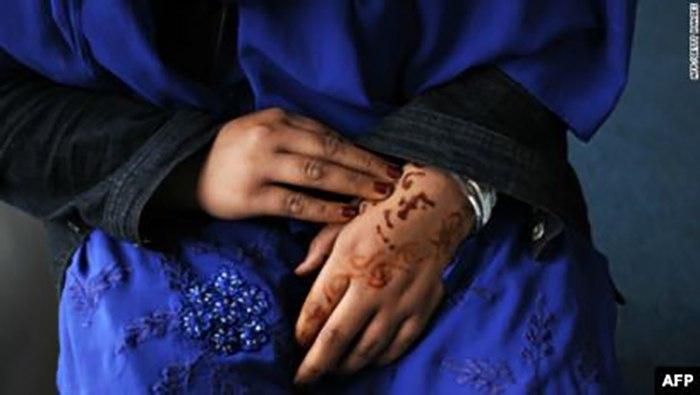A large number of women who were interviewed by Afghanistan Independent Human Rights Commission (AIHRC) say that they were forced to pass gynecological examination. 92 percent of women interviewed by the AIHRC say their virginity tests were taken without verdict by a court or their consents. One out of 129 interviewees, said she was tested for virginity on a court order while nine others said they have undergone forensic testing just to get rid of accusations on them.
Followed by some African countries, Afghanistan is a country where virginity testing is carried out normally despite a repeated call by the rights group its ban. A number of rights group over last couple of years have called on the government, judiciary system and Afghan parliament to ban virginity testing.
Every year, dozens of young women are tested if they are virgin. Many Afghans respect it as cultural honor. Some believe virginity is sign of virtue for young unmarried women.
In Afghanistan, a virginity testing is conducted to examine if a woman or a girl have had intercourse with a man or men. A woman who is accused of having illegal sex is tested for virginity proof.
Under laws of the country, virginity test is conducted by doctors in health facilities. But the myth surrounding virginity in Afghanistan is as old as the history of the country. For majority of traditional Afghan families, talk about virginity is a taboo, and conservative Afghan families regard virginity as pride of family and respect it as a cultural honor.
On October 11, the AIHRC again called for unconditional ban of virginity testing in the country.
In September 2019, Afghanistan’s state law committee revised Article 640.2.2 of the Penal Code and then announced that in case there is no proof of crime being committed, a virginity test should be taken on court’s order.
AIHRC opposed the decision taken by the state law committee and called for unconditional ban on virginity testing.
AIHRC’s report suggests that 32 women by the Attorney General’s Office, five by women or safe shelters, and four by national security have been introduced to health facilities for gynecological examination.
The report says that 44 women were tested if they have had illegal intercourse, 31 were tested if they were virgin, and six were tested for rape accusation while 19 women refused to comment on why they were tested. Findings of this research show that out of 129 respondents who have been introduced for gynecological testing, 44 of them (34.1%) were tested to prove the presence or absence of sperm in their genital organs, 31 (24.0%) were tested for virginity, 29 (22.5%) were tested for proving recent sexual intercourse, 6 (4.7%) were tested to prove the crime of rape, and 19 respondents (14.7%) did not answer the question related to gynecological examinations.
Shabnam Salehi, a member of AIHRC, says compulsory gynecological examination is a humiliating act which disreputes women dignity and leaves traumatizing psychological harms on women mind. As the report suggests, a number of women, who have undergone gynecological examinations, are struggling with post-test sufferings, with a number of them have become completely isolated while others have had suicide attempts.
Some of these gynecological examinations have been conducted for irrelevant charges.
Ms. Salehi underlined that of 129 women, 61 were tested on charges of adultery, 31 tested on charges eloping, 23 tested on charges of murder, six tested for suspicion of rape, three tested on charges of robbery, three tested on charges of trafficking, and two tested on charges of false information.
Out of 129 women interviewed in 13 provinces, 62 are married, 34 are single, 12 are engaged, 14 are widow, and seven are divorced. 78 of them are imprisoned, nine live under police custody, and 42 others live in safe houses.
AIHRC declares gynecological examination as a form of gender-based violence and violation of human rights. “Given the nature of such tests, they are derogatory and disparaging acts and against human dignity of women. Under Articles 7 and 24 of the Constitution of Afghanistan and paragraph 5 of Article 13 of the Law on the Elimination of Violence against Women, as well as Articles 6-10 of the Law on the Prevention of Torture, any act which violates human dignity, is strictly prohibited.”
Gynecological examination, particularly virginity testing, is a shocking practice in Afghanistan. Though rights group have been calling for elimination of the test—which according to World Health Organization (WHO) has no scientific and medical base—yet nothing has been done on legal basis to stop this practice.




